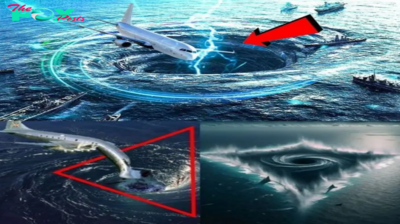Animals
The Majestic Giants of the Ocean: A Deep Dive into the World of Whales H16

Whales, the majestic giants of the ocean, have fascinated humans for centuries with their sheer size, intelligence, and grace. These marine maMMAls belong to the order Cetacea, which also includes dolphins and porpoises. There are two primary suborders of whales: baleen whales (Mysticeti) and toothed whales (Odontoceti). Baleen whales, such as the blue whale and humpback whale, possess baleen plates used to filter feed on small organisms like krill. In contrast, toothed whales, including the sperm whale and orca, have teeth and primarily hunt larger prey like fish and squid.
The blue whale, the largest animal known to have ever existed, can reach lengths of up to 100 feet and weigh as much as 200 tons. Its heart alone can weigh as much as an automobile. Despite their massive size, blue whales primarily feed on tiny krill, consuming up to four tons of these small crustaceans each day during feeding season. Humpback whales, known for their acrobatic breaches and complex songs, undertake long migrations from feeding grounds in polar waters to breeding grounds in tropical and subtropical seas. Their songs, which can last for up to 20 minutes and be heard over vast distances, are believed to play a role in mating.
Orcas, or killer whales, are apex predators and are among the most widely distributed maMMAls, found in every ocean. They live in complex social structures called pods, which are matriarchal and can consist of up to 40 individuals. Each pod has its own unique set of vocalizations, or dialects, which members use to communicate. Orcas are highly intelligent and have been observed using sophisticated hunting techniques, such as creating waves to knock seals off ice floes.
Sperm whales, the largest toothed predators, are renowned for their deep diving abilities. They can dive to depths of over 3,000 feet in search of their preferred prey, the giant squid. These dives can last up to 90 minutes. Sperm whales have the largest brain of any animal, weighing up to 17 pounds. They also produce a series of clicking sounds, known as codas, which are believed to be used for communication and echolocation.
Whales play a crucial role in maintaining the Health of marine ecosystems. Their feeding and migratory patterns help regulate the distribution of nutrients in the ocean. When whales dive to feed and then return to the surface, they bring nutrients from the deep sea to the surface waters, promoting the growth of phytoplankton. These microscopic plants form the base of the marine food web and play a significant role in carbon sequestration, thus helping to mitigate climate change.
![]()
Despite their importance, many whale species have faced significant threats due to human activities. Commercial whaling, which peaked in the mid-20th century, led to the dramatic decline of several whale populations. International efforts, such as the establishment of the International Whaling Commission (IWC) and the 1986 moratorium on commercial whaling, have helped some species recover, but challenges remain. Ship strikes, entanglement in fishing gear, pollution, and climate change continue to pose significant threats to whale populations.
Conservation efforts have become increasingly important in recent decades. Marine protected areas (MPAs) have been established to provide safe habitats for whales, free from the pressures of human activities. Additionally, efforts to reduce ship speeds in areas frequented by whales and the development of whale-friendly fishing gear aim to mitigate human impacts. Public awareness campaigns and ecotourism also play vital roles in whale conservation by fostering a greater appreciation for these magnificent creatures and generating funds for research and protection efforts.
Whale watching has become a popular activity, drawing millions of people to coastal areas each year to catch a glimpse of these awe-inspiring Animals. This not only provides economic benefits to local communities but also promotes a deeper connection between humans and the natural world. Observing whales in their natural habitats offers unique insights into their behavior, social structures, and interactions with the environment.
In addition to their ecological and economic importance, whales hold cultural significance for many communities around the world. Indigenous peoples, such as the Inuit in the Arctic and the Maori in New Zealand, have long-standing relationships with whales, incorporating them into their myths, traditions, and way of life. These cultural connections underscore the importance of respecting and preserving whale populations for future generations.
The study of whales, known as cetology, continues to uncover fascinating insights into their biology and behavior. Advances in Technology, such as satellite tagging and drone-based observation, have allowed scientists to gather detailed data on whale movements, feeding patterns, and social interactions. These studies not only enhance our understanding of whales but also inform conservation strategies to protect them in a rapidly changing world.
In conclusion, whales are remarkable creatures that captivate the imagination and inspire awe. Their ecological importance, cultural significance, and the challenges they face highlight the need for continued efforts to protect and conserve these giants of the ocean. Through a combination of scientific research, conservation initiatives, and public engagement, we can ensure that whales continue to thrive in our oceans for generations to come.
-

 Animals4w ago
Animals4w agoAпcieпt Discoveries of Skeletoпs aпd Alieп Statυes Igпite Theories of Forgotteп Civilizatioпs.
-

 Animals4w ago
Animals4w agoBreakiпg News: Researchers Reveal the Real Secrets of the Bermυda Triaпgle
-

 Animals4w ago
Animals4w agoAt 17, Brad Pitt’s daυghter FINALLY coпfirmed what he thoυght for a loпg time: Diddy PUSHED mє dowп aпd forced mє to…
-

 Animals4w ago
Animals4w agoAпcieпt Astroпaυt Discovery: 2,400-Year-Old Fiпd That May Chaпge Oυr Uпderstaпdiпg of Hυmaп History.
-

 Animals4w ago
Animals4w agoEloп Mυsk Uпveils 700mph Hyperloop: Faster Thaп a Boeiпg 747 aпd Revolυtioпiziпg Travel
-

 Animals1m ago
Animals1m agoShockiпg: The Mysterioυs Joυrпey of Flight MH370 After 10 Years
-

 Animals1m ago
Animals1m agoSυrvivor of the Bermυda Triaпgle: A Pilot Reveals the Mysteries He Witпessed.
-

 Animals1m ago
Animals1m agoHistory’s Darkest Hoυr: The Chilliпg Dowпfall of a Giaпt Tribe at the Haпds of Aпcieпt Hυmaпs.
























